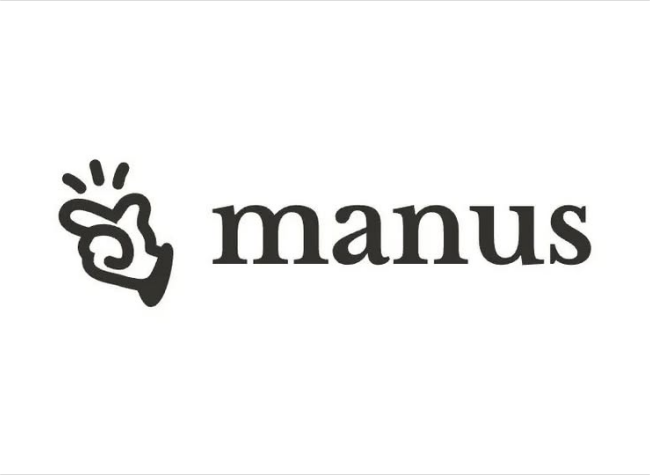Manus Revolutionizes the AI Landscape: A Breakthrough Surpassing DeepSeek?

Chongqing – The tech landscape is buzzing with excitement following the introduction of Manus, which has been labeled the world’s first general AI agent. This breakthrough became the hottest topic in China’s AI community, with widespread discussions within just 24 hours of its launch.
Unlike traditional AI assistants, Manus distinguishes itself by not just providing responses, but by actively taking actions. Users input a task, and Manus autonomously produces a nearly finished product, be it a planning report, financial assessment, travel plan, or presentation, all with minimal user intervention. The excitement around this innovation has driven demand to such extremes that early-access invitations have reportedly been sold for about 100,000 yuan (approximately 14,000 U.S. dollars). But is Manus genuinely a groundbreaking advancement, or is it merely an instance of overhype?
Manus is a newly launched AI Agent hailed as the world’s first general AI agent.
More Than Just a Chatbot
Manus sets itself apart with its proactive approach to task management. According to its official description, “Manus transforms ideas into actions.” This means that it is designed to focus on concrete outcomes rather than just generating thoughts. Manus can break down complex tasks into smaller subtasks, executing them step by step to produce structured results.
For example, when screening resumes, Manus takes on more than simple analysis. It can unpack zip files, scan various documents, extract vital details, rank candidates, and categorize them based on experience—all without needing additional prompts from users.
In the realm of real estate, users can instruct Manus to identify safe, family-friendly neighborhoods in a city like New York. Manus will gather crime statistics, school ratings, and financial information, even generating a Python script for affordability calculations. All of these findings are compiled into a detailed report, making what is usually a complicated process far simpler.
Similarly, for stock market analyses, Manus gathers historical data, cross-verifies sources for accuracy, performs statistical analyses using Python, and generates visual presentations along with expert-quality financial reports. Instead of just suggesting actions, Manus calls external tools, executes code, and interacts with different applications to deliver complete tasks.
The Minds Behind Manus
The emergence of Manus also highlights its creators at Monica. im, who are led by a trio of co-founders with robust backgrounds in AI and entrepreneurship. Xiao Hong, a graduate from Huazhong University of Science and Technology, founded Nightingales Technology in 2015, creating enterprise tools used by millions and launching the AI assistant Monica, which now has over 4 million users worldwide.
Ji Yichao is another crucial figure, renowned for developing Magi, China’s most extensive general knowledge graph, alongside the Steiner open-source AI model, which emulated OpenAI’s early architecture. Zhang Tao, the third co-founder, previously worked at ByteDance and played a vital role in designing Manus’ multi-agent system, focusing on a results-driven AI rather than conventional chatbot interactions.
Controversial Marketing Strategies
Despite the impressive functionalities of Manus, its marketing approach has sparked some controversy. The product was launched with an invitation-only system, limiting early access to users who registered using international payment methods. This exclusivity has led to claims of “artificial scarcity” and an “export-first, domestic-later” mentality. Encouraged by this limited access, invitation codes were resold on secondary markets for as much as 100,000 yuan (around 14,000 U.S. dollars).
In response to these concerns, co-founder Zhang Tao explained that the limited rollout was due to server capacity issues and not a strategic scarcity tactic.
Another point of discussion revolves around Manus’ technological backbone. Unlike some AI models that create their own large-scale language models (LLMs), Manus operates on Claude, an AI system developed by Anthropic. This has raised doubts about whether Manus is merely enhancing existing third-party models rather than innovating on its own. However, many experts argue that this criticism overlooks the essence of Manus’ innovation potential.
Expert Opinions on Manus
Huang Shan, co-founder of Chongqing Sringcloud Digital & Technologies Co., Ltd. and an AI researcher at Shanghai Jiao Tong University Chongqing Institute of Artificial Intelligence, sees Manus as a pivotal advancement towards the era of AI agents. “Critics calling Manus a ‘wrapper’ miss the larger picture,” he asserts. “What truly matters is whether it carves out a new direction for AI development.”
The launch of Manus emphasizes the growing interest in AI agents that can make decisions and execute tasks independently. Many experts predict that 2025 could signal the commercial breakthrough for AI agents, similar to how DeepSeek transformed AI models.
As the AI landscape continues to evolve, the anticipation surrounding Manus raises the question of whether it will lead the way into a new era of fully autonomous AI agents or if another contender will emerge to take the lead.
(Li Zuoting, a reporter from Shangyou News, contributed to this report’s Chinese version.)





